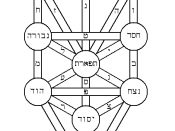De La Salle Ashfield
Studies of Religion 1
Task 2 2014
Nicholas Kyriakopoulos
1) Describe the core ethical teachings of Judaism?
The Ten Commandments, also called the Decalogue refers to a list of ethical instructions that was handed to Moses by God on Mount Sinai. It is regarded as the distillation of the 613 mitzvot. The Ten Commandments are a primary part of the Jewish ethical system which can be divided into two groups. These being positive and negative commandments and have specific meanings. The beginning five commandments compromise with the relationship between God and the people of Israel. These commandments are positive, affirmative commandments. The next five commandments are focused with the relationship between individuals and their community. These commandments are mounted in terms of what one shall not do. These commandments are known as negative commandments. The 613 mitzvot provide the vast application of the Jewish ethical principles and are observed as the foundational aspect of Jewish ethics. The 613 mitzvot can be divided into two groups. The two groups consist of positive and negative mitzvot. Negative mitzvot are commands to forgo from doing something. For example 'do not murder. Whereas positive mitzvot are commands to comply and act. For example to love one's neighbour. These mitzvot represent the foundational tenets of Jewish ethics. The most important source of ethical guidance for Jews is the Torah which encompasses the Written and Oral Torah. The Torah is Judaism's most important text. It is composed of the Five Books of Moses and also contains the 613 commandments mitzvot and the Ten Commandments. The word Torah means to teach. Jewish ethics is derived from the covenantal relationship where they were protected and taught their responsibilities towards God and other people. Ongoing Rabbinic discussion ensures that the core tenets of...


